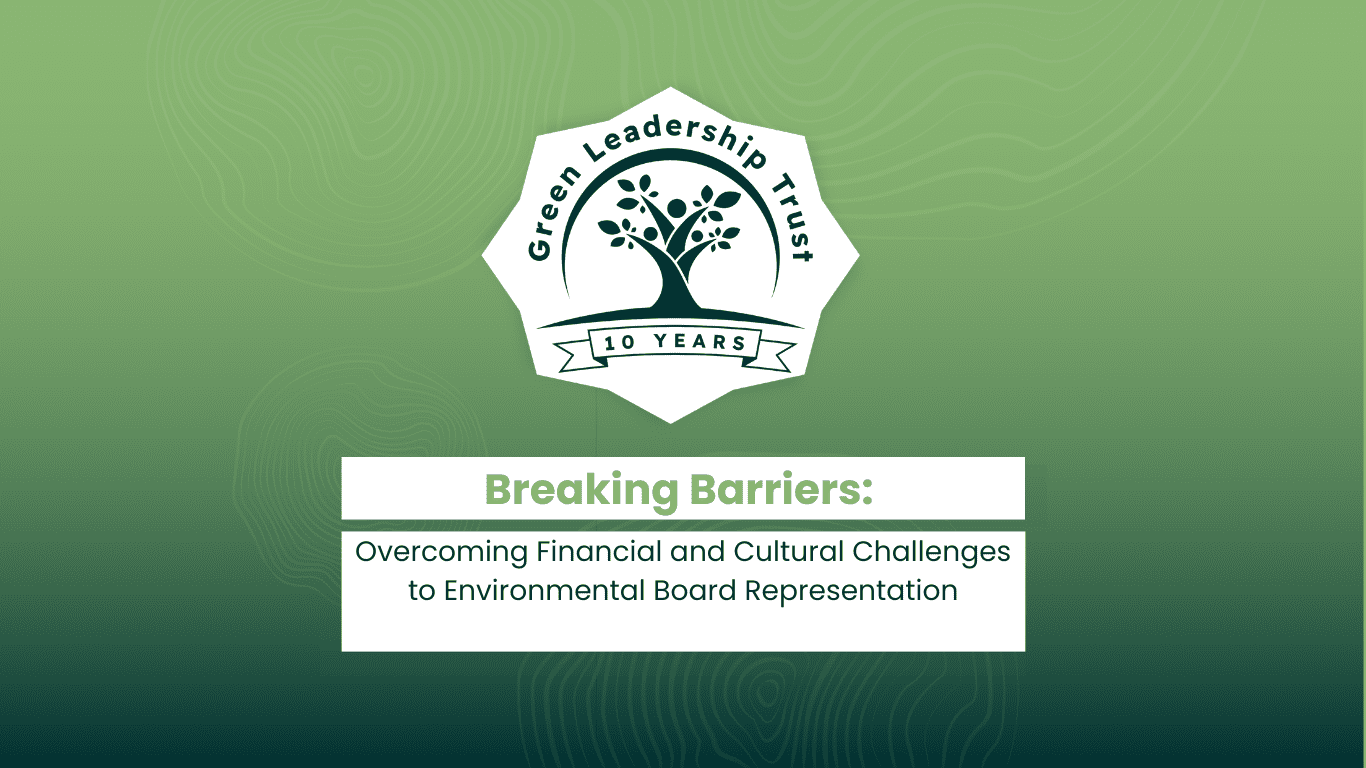
Discover the Key to Equity in Environmental Leadership
For over a decade, the Green Leadership Trust (GLT) has championed diverse leadership to transform the environmental sector. Our latest report, the Breaking Barriers: Overcoming Financial and Cultural Challenges to Environmental Board Representation. It, sheds light on the persistent barriers faced by People of the Global Majority (PGM) in board service and explores the transformative potential of monetary compensation to advance equity and inclusion.
Executive Summary
Green Leadership Trust (GLT) has spent the past decade advancing diverse leadership and transforming the governance of environmental organizations to bring about systemic change in the environmental sector. However, People of the Global Majority (PGM) still face impediments to serving on the boards of these organizations.
This study identifies barriers and interrogates the role of compensation in supporting board service for these leaders. The report discusses findings from 73 environmental and climate board members representing diverse sectors and includes interview narratives contextualizing PGM board membership experiences. A key takeaway is that monetary compensation can increase PGM participation on environmental boards.
What You’ll Learn from the Report:
- The critical challenges faced by PGM leaders, including time commitment and isolation.
- How compensation can serve as a tool for fostering greater diversity and equity.
- Actionable recommendations for environmental organizations to embrace inclusive governance.
This essential resource provides findings from surveys and interviews with 73 environmental and climate board members and presents insights for creating equitable pathways to leadership.
Ready to dive deeper? Fill out the form below to download the full Barrier and Compensation Report directly to your inbox.
Be part of the movement reshaping the environmental sector for a more inclusive and impactful future.
Together, we can build a future where leadership reflects the diversity of the communities most affected by environmental challenges.